Last week’s article explored the requirements for a gecko to be ready for breeding. This week’s article will provide information about what the human in charge of gecko breeding needs to consider in order to have a successful experience.
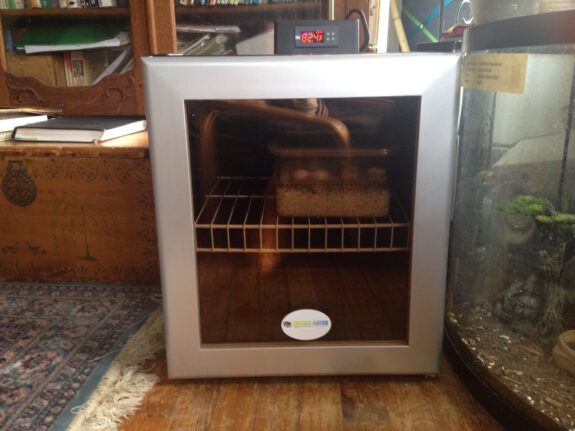
Do You Have the Space?
Each female gecko that is successfully bred may lay anywhere from 2-20 eggs or more, usually two at a time, often every 2 weeks. Not all the eggs that are laid will hatch and not all geckos that hatch will survive. If you do the math, though, 3 female geckos laying 20 eggs each could produce 60 hatchlings. That’s a lot of baby geckos! Before beginning a breeding project, consider how and where you will house all these hatchlings. Many breeders utilize rack systems: shelves with heated plastic tubs that can house a number of geckos in a space efficient manner.
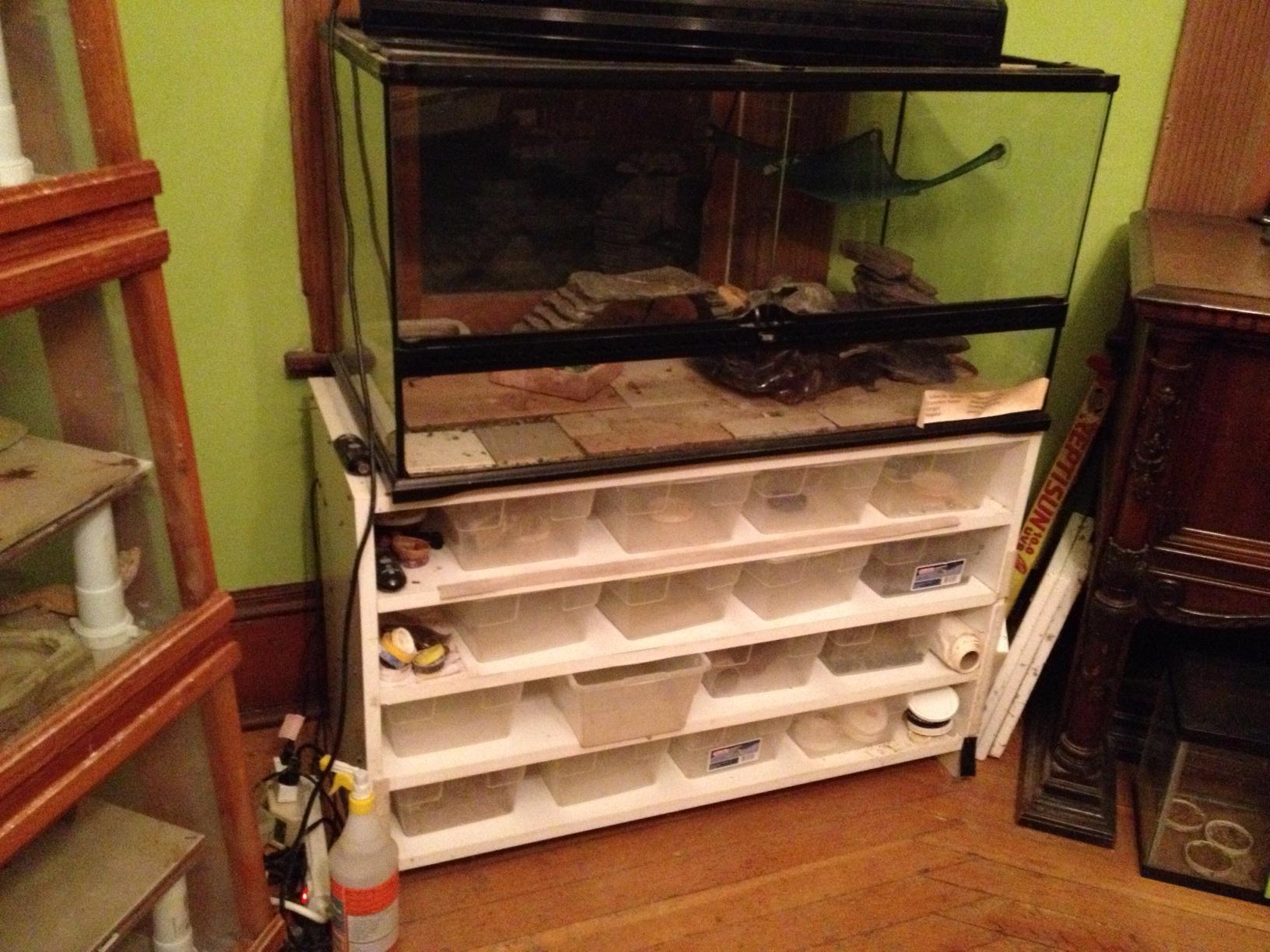
There are also well-ventilated clear plastic tubs available commercially that can be stacked.
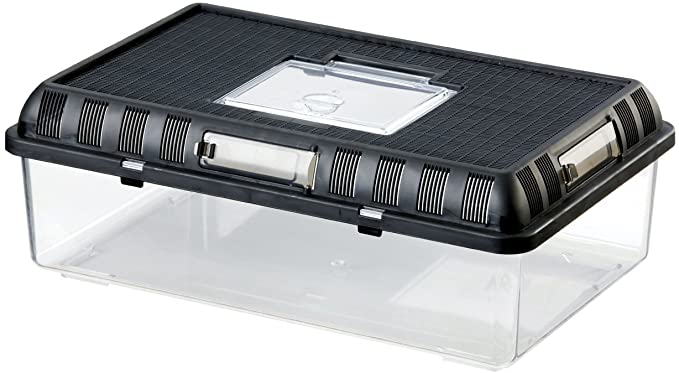
Exo Terra Breeding Box
When I was breeding leopard geckos, I invested in front-opening glass enclosures that I could put on shelf units and subdivide into 2 or 3 hatchling spaces. The amount of space available should dictate how many geckos are bred. It’s a good idea to actually count up how many hatchings your space can accommodate when deciding how many geckos to breed. It’s also important to consider where you’ll house geckos that haven’t been sold when the next breeding season comes around!
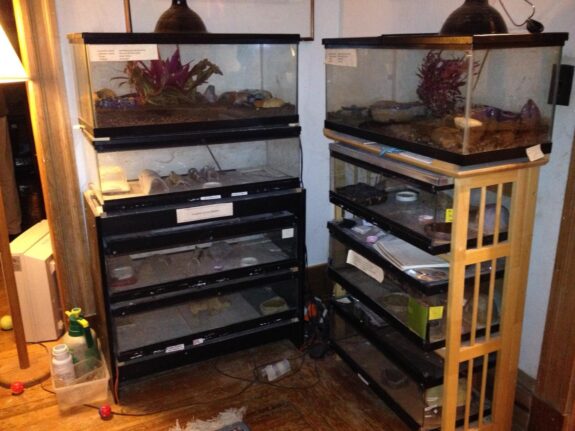
Do You Have the Time?
Caring for gecko hatchlings and breeding adults can be very time consuming. Hatchlings are usually fed every day. In addition to feeding, all the geckos will need to be inspected daily for retained shed, signs of aggression if hatchlings are kept together, failure to thrive, egg binding and other health problems. This can easily take several hours a night. Gecko breeding does not go along well with taking 2-week vacations unless the breeder can find a knowledgeable substitute to fill in. Similarly, working at a demanding job, parenting small children, planning to welcome a new baby into the household or having hobbies that take up a huge amount of time could be reasons to decide not to become a gecko breeder. These factors are not deal breakers; some people have a lot of energy or don’t need much sleep. When considering becoming a gecko breeder, think about how much free time you have during the breeding season, how much time you can free up and how willing you are to invest that time. Also consider the amount of time you will need to spend in the process of selling your hatchlings. This includes time spent on publicity, speaking with customers, vending at reptile shows and shipping your geckos.
Do You Have the Money?
Feeding, housing, selling and providing medical care for a large gecko population isn’t cheap. The amount of money needed can be mitigated somewhat by buying used supplies, making some items and taking the cost of breeding into account when setting prices for the geckos. Some expenses, such as housing units, are one-time purchases. Feeders, though is an ongoing expense. 
At the height of my gecko breeding years, when I was producing 60-70 hatchlings and breeding my own mealworms, I still had to buy 10,000 mealworms one month. They had all been eaten by the end of the month. With so many geckos, there are often medical emergencies including egg-binding, wounds due to overenthusiastic mating, prolapses, accidents and injuries. A gecko breeder needs to have financial resources to deal with unforeseen medical emergencies. The gecko market gives no guarantee that a gecko can be sold for the breeders’ most optimistic price. Some of the more common gecko species, such as leopard or crested geckos have many breeders selling their geckos which means that either the price inevitably goes down or the geckos don’t sell. Breeders of less common species may be able to charge more, but there are fewer people who will want to buy these more unusual geckos. It’s difficult to know exactly how much a breeding project will cost. It is possible to get an estimate based on cost of housing, feeders and reptile show fees. In addition, it’s important to have a few hundred dollars available in reserve to cover major emergencies.
Do You Have the Emotional Resilience?
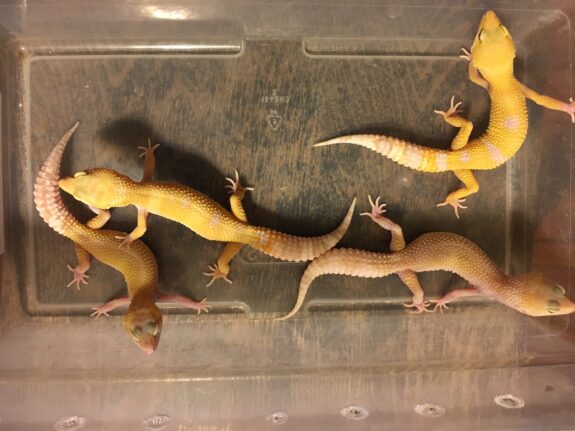
Finding eggs in the lay box or on the wall of the enclosure is exciting, but there’s nothing that beats seeing newly hatched geckos running around in the incubator (or the cage). It’s amazing every single time! The downside is finding hatchlings that are dead in or out of the egg, hatchlings with deformities that aren’t compatible with life, hatchings with deformities that will need special care, having to put down adult breeders due to injury or egg binding. Some hatchlings die because they can’t get the hang of eating, or because there are internal problems that we can’t see. For some people, even parting with the geckos that have been produced is difficult. The more hatchlings that are produced, the greater the chance of deformities or injuries. If you are a person who experiences constant high anxiety about animals under your care or who feels devastated about the prospect of a gecko death, breeding may not be for you.
In Conclusion
Breeding geckos can be exhilarating if you have the resources and devastating if you don’t. Even when it’s exhilarating, there are days when it’s just a lot of hard work. It’s important to remember:
- You can start small with only 1 or 2 female breeders to get your feet wet and see if you like it
- You will not get rich breeding geckos and it’s questionable whether you will even break even
Here are some articles that have appeared in Gecko Time previously that may help enhance your breeding experience:
Guide to Breeding Leopard Geckos on a Small Scale
Gecko Hatchlings with Problems Part 1
Gecko Hatchlings with Problems Part 2
Selling Popular Gecko Species
Selling Rare Geckos
How to Vend at Your First Reptile Show



